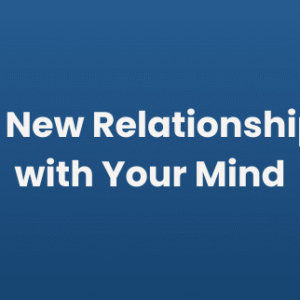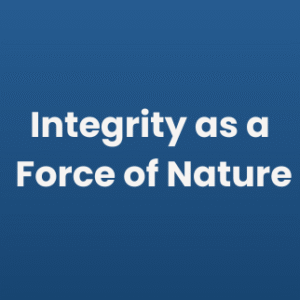There comes a time when you’ve moved beyond simple productivity hacks and have come to understand that real performance comes from presence, not just frantic effort. You’ve tasted the clarity that comes from stillness.
But this awakening brings a new, more sophisticated dilemma. You find yourself standing with one foot in a new inner world of clarity, and the other in an outer world—your organization, your team, your career—that hasn’t changed.
How do you operate from a place of deep integrity within a system that often rewards the opposite?
How do you lead when your team, your boss, and your culture are still worshipping an outdated map?
The Myth of the Loud Rebel
A predominant cultural image of a change agent is the loud rebel—the one who openly challenges the status quo, flips over the tables, and wages a war against the old guard.
But while this approach has its place, in the complex ecosystem of a modern organization, it often backfires. A loud rebellion typically triggers the corporate immune system, which quickly identifies the change agent as a threat and works to neutralize them. This path can lead to burnout, isolation, and a reinforcement of the very structures you hoped to change.
The most effective leaders understand this. Their work is a quiet revolution. They are not loud rebels; they are covert operators of the highest integrity.
Three Practices of Covert Leadership
The work of a covert leader is grounded in three subtly powerful practices.
1. Translation, Not Proclamation
Your primary responsibility is not to teach your organization about presence, stillness, or spirituality. It is to translate your inner state into a language the business understands and values. Your personal clarity is the means, not the message.
-
Your newfound stillness is translated into astute, timely decision-making amidst chaos.
-
Your embodied presence is translated into deep listening and heightened psychological safety, which in turn drives team engagement and innovation.
-
Your cultivated intuition is translated into uncanny market insight and the ability to anticipate challenges before they arise.
You don’t talk about “presence”; you embody it, and the organization sees the results.
2. Creating Pockets of Sanity
You may not be able to change the entire corporate culture overnight, but you have absolute sovereignty over the micro-culture of your own team. The Awakened Leader takes radical responsibility for their immediate sphere of influence.
I was once challenged playfully by a client in a corporate program. He said, “What you’re saying makes sense, but my bosses need this more than I do.”
My response was simple: “We can’t change your boss, but we can ensure that you are the kind of leader for your team that you wish you had.”
This is the essence of the practice. You become the leader you wish you had, and in doing so, create an island of clarity, high performance, and well-being. This “pocket of sanity” becomes a case study and a quiet inspiration for the rest of the organization.
3. Leading with Generative Questions
A leader who tries to impose disruptive answers often creates resistance. Instead, you can guide the system to its own insights by asking generative questions. For example, in a meeting about a flawed process, instead of saying “this is broken,” you might ask:
-
“What is the ultimate purpose this process is designed to serve?”
-
“What is the real-world impact of our current approach on our team and our clients?”
-
“What might become possible if we were to look at this with fresh eyes?”
This approach respects the intelligence of the group and allows change to feel like a collective discovery rather than a top-down mandate.
Beyond the Fear of Isolation
Even with a subtle approach, operating differently can feel exposing. A natural fear arises: “If I truly change and show up as this ‘Awakened Leader,’ will my new perspective isolate me from my peers and the company culture I need to navigate to be effective?”.
But the (un)surprising truth is that authentic, grounded presence rarely leads to lasting isolation. Instead, it offers implicit permission.
When your colleagues see you navigating pressure with calm, they don’t see weakness; they see strength. When your team feels the psychological safety you create, they don’t feel alienated; they feel seen.
Your courage to embody a different way of being gives others the unspoken permission to do the same. The fear is isolation, but the reality is often a powerful, silent invitation for others to rise to a new level.
The work of an Awakened Leader in a conventional system is a quiet revolution. It is about being the calmest and most discerning voice in the room. It’s about understanding that you cannot force a system to wake up, but when you wake up, you can create the conditions for it to evolve.




